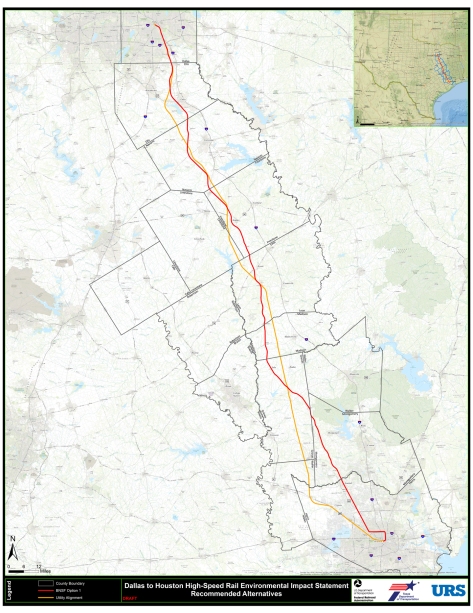Arlington and Ft. Worth stations in the works, or just wishes?
Texas Central Railway had previously stated an unwillingness to build past their projected Dallas suburban terminus (costs), but comes this bit of news:
http://fwbusinesspress.com/fwbp/article ... tails.aspx" onclick="window.open(this.href);return false;
Texas Central Railway had previously stated an unwillingness to build past their projected Dallas suburban terminus (costs), but comes this bit of news:
Plans call for rail stations in Fort Worth, Arlington and Dallas, from which passengers could travel to Houston. Specific station locations have not been decided. More cities statewide could be added to the rail line after the initial route is established, Eckels said.The way the article is written, we don't know how much is old rehashed news and what is new, as far as station location- Mr. Eckels being noncommittal so far.
Though no public funds are part of the project, Jordan said that could change.
“We’re not going to volunteer public funds, but if it were to solve a public issue and it were cost effective, then obviously a public-private partnership would be the correct way to go,” said Jordan, citing right-of-way acquisition as constituting a public issue, for example.
Asked how much passenger tickets would cost, and Eckels said, “as much as we can charge,” emphasizing his company’s private business status.
“It can change your price $500 million to $1 billion just to move a station a half mile,” said Eckels.
Turning a profit is essential for the company due to its private status, Eckels said.
“We have to pay back our debt and our investors. We are particularly sensitive to issues that can drive costs,” said Eckels, referring to station location, alignment and other considerations.
http://fwbusinesspress.com/fwbp/article ... tails.aspx" onclick="window.open(this.href);return false;
